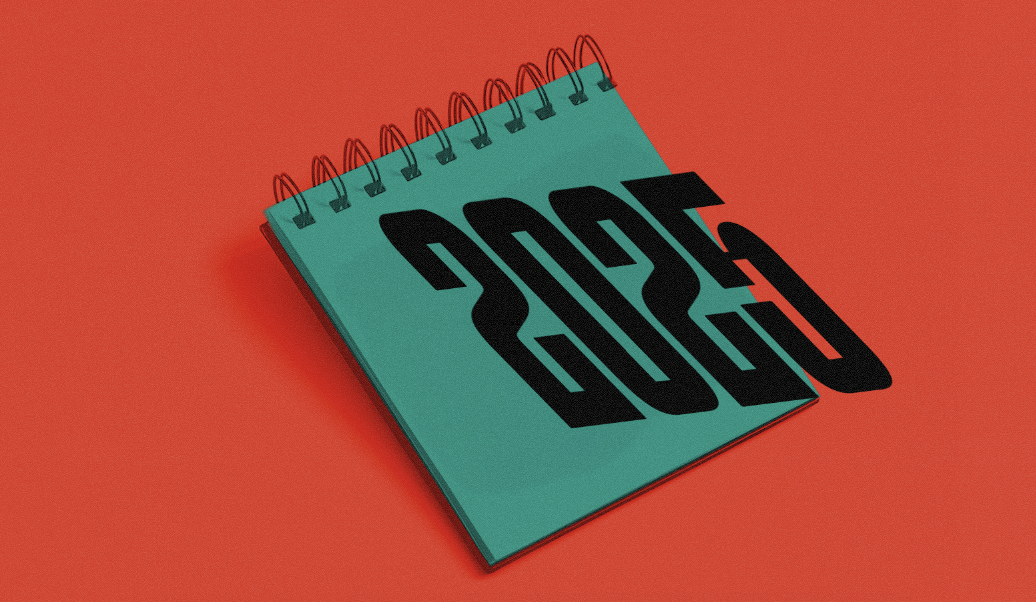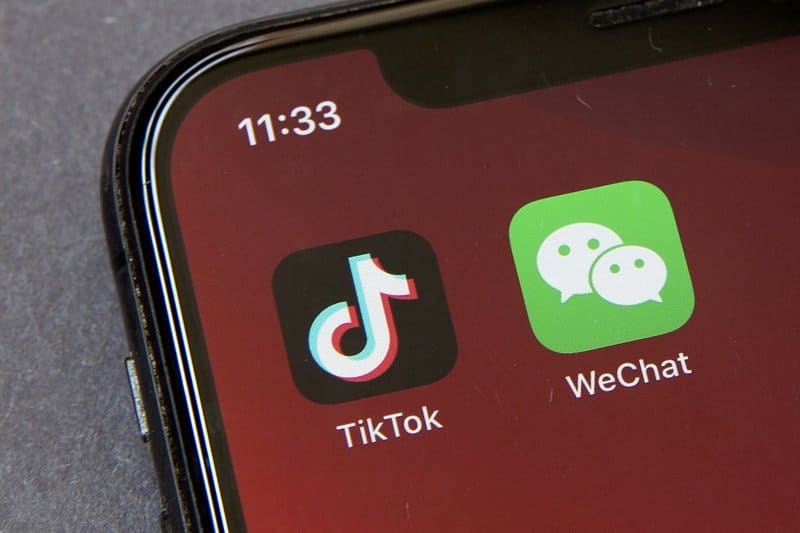#consumer-behavior
#consumer-behavior
[ follow ]
#inflation #holiday-shopping #e-commerce #social-media #retail-marketing #tariffs #social-commerce #bfcm
Cars
fromFortune
3 days agoRivian CEO says it's a misconception that EVs are politicized, with R1 buyers split evenly between Republicans and Democrats | Fortune
EV ownership crosses political lines: Rivian buyers are roughly evenly split between Republicans and Democrats, indicating electrification appeals across ideologies.
Artificial intelligence
fromwww.theguardian.com
4 days agoWhat to buy Dad for Christmas': is retail ready for the AI shopping shift?
AI chatbots are reshaping holiday shopping by recommending products conversationally, shifting influence from paid search keywords to reviewer opinions, availability, and product data.
fromThe Drum
4 days ago3 ways advertisers can support sustainable behavior change with their work
As advertisers do the difficult work to reduce their own emissions, many are turning to another, and possibly even larger, opportunity to have a positive impact on the planet - the messages they choose for their ads. Advertising has the power to positively influence consumer behavior, and every brand can and should consider how their creative work can deliver on that promise.
Marketing
Marketing
fromMarTech
5 days ago4 takeaways for email marketers from Google's 2025 holiday report | MarTech
Holiday 2025 shoppers are increasingly deliberate, research-driven, and influenced by distinct cognitive buyer modalities, requiring modality-aligned, multi-touch marketing and personalized email strategies.
fromFast Company
1 week agoThe insurance coverage squeeze is reshaping healthcare
Every year, open enrollment forces Americans to confront a familiar dilemma: Pay more for coverage that delivers less, or gamble on going without it. This year, that choice has become even starker. Employers are shifting more costs to workers, marketplace premiums are poised to rise, fewer prescription drugs are covered by insurance, and 3.8 million people could lose insurance annually if Affordable Care Act subsidies aren't extended.
Public health
fromFast Company
1 week agoHow the Macy's CEO sees retail in a world of tarriffs and shifting consumer habits (and how he gets ready for the parade)
I think the news certainly makes things more complicated. I think people are confused. We had a terrific second quarter. We talked about the back-to-school business being pretty healthy, and yet we all see potential storm clouds on the horizon. So we're trying to be cautiously optimistic... You could stay up all night worrying... But in reality, our job is to make sure we create a better shopping experience for the customer.
Business
fromZDNET
1 week agoShould you trust AI agents with your holiday shopping? Here's what experts want you to know
In late October, OpenAI launched ChatGPT Atlas, a web browser with ChatGPT at its core. In Agent Mode, it can perform actions on your behalf, such as pulling together an online order. Elyse Betters Picaro, Senior Contributing Editor at ZDNET, tried it that day, successfully using it to place a same-day delivery order from Walmart. The experience was so positive that she then used it to buy Disney on Ice Tickets, which she said saved her some money and hassle.
E-Commerce
fromFast Company
1 week agoGeneric brands are so fancy now that even rich people want to buy them
Grocers have rebranded and grown their portfolio of private label brands over the past several years to cater to consumers pressed by inflation, and it's paid off as the highest-earning shoppers make up an increasingly large share of the economy. Nowhere is this more true than Walmart, the leading grocer since 2019, which launched a new private label called Bettergoods in 2024 that includes products that are plant-based, organic, or gluten-free.
Food & drink
fromRetail Brew
1 week agoMove over Instagram, consumers are turning to each other for shopping advice
Forget influencers and glossy magazines-this holiday season, Americans are turning to each other for shopping advice. New data from Trustpilot's National Write a Review Week campaign shows a 76% YoY spike in consumer reviews. The initiative, which ran October 20-24, attracted ~4 million visitors nationwide-a 63% jump from the same period in 2024-signaling how heavily shoppers are relying on feedback from real buyers. Trustpilot's AI and Black Friday shopping analysis reinforced the trend as 86% of shoppers checked reviews before making a holiday purchase.
E-Commerce
fromObserver
1 week agoHow A.I. Is Changing Black Friday Shopping Forever
A.I. is helping holiday shoppers empty their wallets at an unprecedented pace. U.S. consumers spent a record $11.8 billion online this Black Friday, according to Adobe Analytics, and are expected to shell out another $14.2 billion on Cyber Monday. Driving this shopping frenzy is a growing reliance on A.I. systems to recommend gifts, track prices and place orders. Shoppers are especially turning to chatbots to research products and hunt for deals.
E-Commerce
fromYahoo Life
2 weeks ago15 Cultural Trends That Lost Popularity Thanks to Millennials
Their unique experiences and values have impacted several aspects of culture, from consumer behavior and communication styles to lifestyle choices and relationship trends. As a result, certain fads and practices that were once popular have fallen out of favor with this influential generation. While some may bash millennials for their perceived aversion to traditional norms, it's important to recognize that their choices often reflect an underlying longing for authenticity, sustainability, and social consciousness.
Marketing
fromFuturism
2 weeks agoThe Economy Is Sputtering as People Keep Using Their Old Phones That Work Fine
It's easy to understand the reluctance to upgrade. Phones can do loads more than they could a decade ago, and their price tag reflects that. Their cameras are absurdly good, their screens run at buttery smooth framerates, and their hardware is powerful enough to let you play games just as easily as they let you edit video, join conference calls - or, let's be real, doomscroll. How much more juice do they really need with each generation?
Gadgets
fromPsychology Today
2 weeks agoIs Tipping Getting Out of Hand?
As I stood staring at the screen, the tip buttons-20%, 25%, even 50%-blinked back at me like a test I hadn't studied for. Not knowing the answer, I felt a jolt of panic. A line had formed behind me, and I could practically feel the eyes on my back. In my mind, they were all silently judging, waiting to see which button I'd hit. I quickly looked for the button for "no tip," but, under pressure, guilt made the decision for me. I tapped 20%.
Psychology
fromPsychology Today
2 weeks agoReclaiming Time Through Nostalgia
Two Ways of Living Through Time Clock timers live by external time. They wake up to an alarm, eat breakfast at a designated hour, and arrive at work precisely when the clock dictates. Their day unfolds in neat, measurable units, each activity clearly marked by a start and an end. A clock timer's sense of order comes from synchronizing with the external rhythms of time.
Marketing
fromBenzinga
2 weeks agoAI Fever Hits High-Income Consumers - But Not The Rest Of America - Zoom Communications (NASDAQ:ZM), DoorDash (NASDAQ:DASH)
Google's Gemini and OpenAI's ChatGPT were the two fastest-growing brands this year among consumers earning more than $100,000 a year, according to Morning Consult. The report measured interest in these tools by purchasing intent, which jumped sharply from the first quarter to the third quarter. Don't Miss: Brand awareness among this income group also skyrocketed. Gemini, for example, rose from 62% awareness early in the year to 78% by the third quarter. ChatGPT remains the most well-known AI tool, with 89% familiarity among high-income consumers.
Artificial intelligence
E-Commerce
fromBenzinga
3 weeks agoCOVID Turned Us Into Homebodies - And Those Habits Are Rewiring Our Consumer Behavior, McKinsey Survey Says
Post-COVID consumers spend more time at home, allocate extra free time to solo online activities, and prioritize convenience-driven digital shopping and delivery.
fromInc
3 weeks ago3 Different Types of Customers Brands Should Target Now
The impact of social-media-driven, algorithmic advertising really can't be overstated. In just the past five years alone, we've seen the advent of TikTok and the total takeover of Instagram: visual venues that have shortened the distance between "seeing" and "buying" to nearly zero. These days, shoppers hardly ever leave their chosen app. This has completely eroded the old rules of e-commerce. Black Friday is in August now and lasts for 100 days. Back to School is all four seasons.
E-Commerce
fromBusiness Insider
4 weeks agoWe waited in line for the 'Erewhon of New York' and saw the power of TikTok marketing firsthand
Meadow Lane, a gourmet grocer in New York City's Tribeca neighborhood, opened Friday at 11 a.m., attracting quite the line of hopeful and hungry shoppers. The brainchild of former venture capitalist Sammy Nussdorf, the store had a cult following before it had a physical retail space. He's been posting about the storesince June 2024, and some of his taste-tasting videos of the menu have gone viral.
Growth hacking
fromwww.theguardian.com
1 month agoI decided to put my change into a cash-converting machine. Big mistake | Adrian Chiles
A couple of police officers leapt out and asked us to jump up and down. You what? They asked us again, but in a tone suggesting it was less of a question than a command. Up and down we jumped until told to stop doing so. The cops thanked us for our trouble and, jumping back into their vehicle, explained they were on the hunt for some lads who'd just robbed an amusement arcade.
London
Food & drink
fromBusiness Insider
1 month agoAmericans are on a budget. They're also on Ozempic. Food companies are raking in cash by catering to both.
Packaged foods and restaurant portions are shrinking as companies offer smaller sizes responding to tighter budgets, weight-loss drugs, and changing consumer portion preferences.
fromFortune
1 month agoYves Saint Laurent was the hottest luxury brand this year, beating Coach, Prada, and Bottega Veneta: It's a clear 'signal of the shifting landscape' | Fortune
But Lyst's Q3 2025 Index offers some perspective on the "hottest brands and products" over the last three months. The index, which analyzes shopper behavior from "more than 160 million annual users across thousands of brands and stores," featured French luxury retailer Yves Saint Laurent emerging at the top of the list for the first time. In second, third, and fourth place were Miu Miu, COS, and The Row, respectively.
Fashion & style
fromFast Company
1 month agoHow weird wins
If you want a sociological anecdote of how weird wins, look no further than online dating. Dating apps have shown us that people don't actually want the most "normal" partner. They want quirks that stand out. Hinge data shows that profiles mentioning a niche interest-like a specific video game or obscure hobby-are more likely to get matches than generic "I like to travel" statements.
Marketing
fromFortune
1 month agoFor Gen Z, quiet luxury is dead-they're packing lunch at home while shelling out on conspicuous consumption | Fortune
When economist Thorstein Veblen coined the term "conspicuous consumption" in 1899, he was describing a new kind of social display: one where people bought goods not out of need but as "trophies of success." To Veblen, the emerging "leisure class" proved its superiority not by labor or contribution but by its seeming exemption from work and its power to waste.
Fashion & style
fromwww.theguardian.com
1 month agoAnti-ageing trousers? There really is no fashion or beauty claim too wild
Seeing an attractive face activates the brain's reward and social circuits releasing the feelgood hormone dopamine, writes Laura Elin Pigott, a senior lecturer in neurosciences and neurorehabilitation at London South Bank University. This hormone is also released when we happen to live up to a specific beauty standard, making this feel biologically gratifying. All is not lost though our perceptions can be retrained, apparently. The science makes it clear: our brains respond to what they're fed.
Science
Coffee
fromBusiness Insider
1 month agoGet lost, Labubu: the Starbucks Bearista is here - and it's reselling for hundreds of dollars
Starbucks' Glass Bearista Cold Cup sold out quickly, sparked massive resale demand, and caused customer crowds and store shortages with barista reports of aggressive behavior.
Business
fromTearsheet
1 month agoNavigating the subscription economy: Pricing, experience, and data - Tearsheet
U.S. subscription businesses remain confident about growing recurring revenue despite slower year-on-year growth and increasingly price-sensitive consumers demanding flexible pricing and value.
Marketing tech
fromMarTech
1 month agoTwo-thirds of listeners say podcasts recommendations drive purchase decisions | MarTech
Podcast hosts drive significant consumer purchases and shift listener beliefs through deep, trust-based connections, acting as 'narrative influencers' despite not being labeled influencers.
fromGrocery Dive
1 month agoPouring growth back into alcohol sales: How digital cashback is rewriting the playbook for retailers
For decades, the alcohol category has been a reliable driver of trips and revenue for grocery retailers. But today, that consistency can no longer be taken for granted. According to NielsenIQ, alcohol sales in U.S. retail fell by nearly 3% in 2024 - one of the sharpest year-over-year declines in recent memory. Tariffs on imports and the popularity of non-alcohol alternatives and CBD products are creating headwinds.
Marketing tech
E-Commerce
fromFortune
1 month agoCandy inflation has spooked so many consumers almost 80% say they're forced to scale back how much to buy for Halloween | Fortune
Rising candy prices are causing most shoppers to reduce Halloween candy spending, hunt deals early, and cap budgets much lower than previous years.
Food & drink
fromTasting Table
1 month agoThis Is How Trader Joe's Influences You To Buy More Than What's On Your Shopping List - Tasting Table
Trader Joe's drives impulse purchases through limited curated selection, playful atmosphere, and frequent short-lived seasonal products that reduce decision fatigue and create urgency.
fromForbes
1 month agoHow AI, Identity And Timing Will Define Black Friday/Cyber Monday 2025
There's little room for guesswork in digital commerce. Nowhere is that more apparent than during Black Friday and Cyber Monday (BFCM), the annual battleground where consumer intent meets brand execution at full throttle. This year, the ability to capitalize hinges on how well companies use identity, AI and behavior to trigger the right engagement at exactly the right time. I'm talking about redefining what performance means in a landscape where attention is scarce, prices are politicized and shoppers are driven by data over impulse.
E-Commerce
fromVinePair
1 month agoThe VinePair Podcast: Brand Managers Can't Market Just to Themselves
It's not news that many of the alcohol industry's brand managers seek to bring their products to cities where they themselves don't actually live. These people often live in cities like New York and Los Angeles and commute to smaller cities across the country in an attempt to integrate their brands. But while doing so, they often market through the lens of what's working in their home cities, not necessarily through the lens of what people in their target markets are actually doing.
Wine
[ Load more ]














